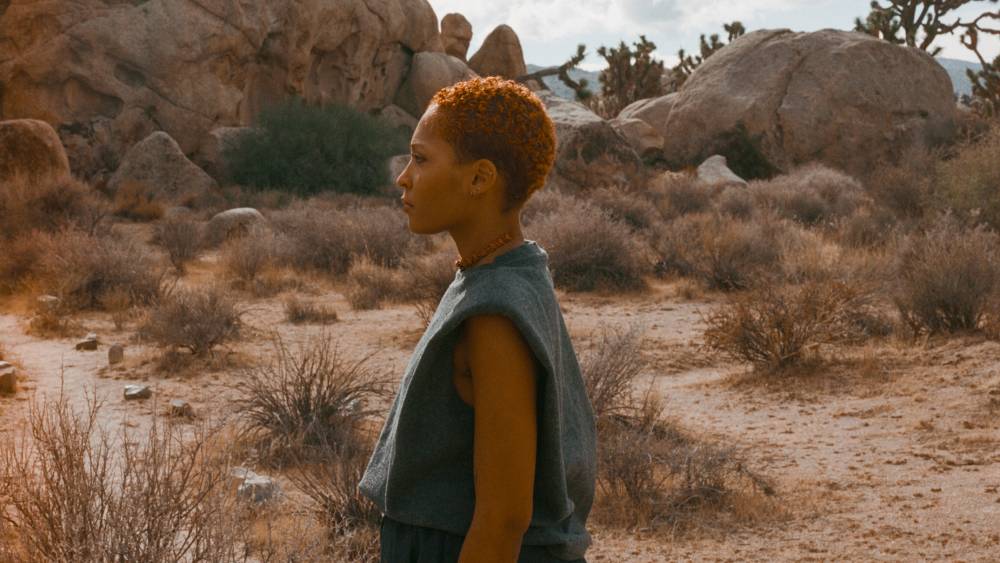In a watershed moment for the music industry, major UK record labels have agreed to pay songwriters a non-recoupable £75 per diem, plus expenses, for taking part in writing sessions.
Described by The Ivors Academy as a ‘landmark step’ to help sustain and support songwriters, this deal marks a global first when it comes to this type of payment being formally agreed with major labels.
At the heart of this campaign is songwriter, artist and activist Tom Gray. It was Tom — who is also a PRS Board Director, Chair of The Ivors Academy and founder of the Broken Record campaign — who first proposed the idea of songwriter per diems during an Ivors Academy Songwriter Committee meeting eight years ago. What started as a common-sense suggestion — borrowed from his experience as a touring musician — evolved into a central demand of songwriter advocacy and a rallying cry from stages at the BRITs, The Ivors and beyond.
Speaking to M, Tom reflects on the origins of the campaign, the political and cultural forces that helped deliver this breakthrough, and why songwriters’ pay remains central to the future of the music industry.
Can you explain what per diems are and why this concept is so important for songwriters?
‘The story of per diems for songwriters goes back to when I first started participating in The Ivors Academy eight years ago. I began attending Songwriter Committee meetings and it was clear even then that songwriters were really struggling because of what streaming had done to their income. The whole idea of doing a writing session used to be that you might be rewarded on the back end. If you got a cut — even a B-side or an album track — there’d be money because you were part of a product that was being sold. But in the streaming world, unless you were on the lead single — and, even then, it became a massive hit — you weren’t going to make much.
‘So all the risk going into the sessions fell on the songwriter, with no guarantee of getting anything back. That used to be more acceptable when the hit rate was higher, but it became increasingly unsustainable. I remember sitting in a room at The Ivors Academy listening to people talk about how they’d like to be paid for sessions, but didn’t want to sign contracts or deal with the legal hassle. Coming from an artist background and having toured, I’d always received per diems. In touring, theatre and even film, there are daily payments built into production costs. They’re not contractual, they’re just there to help you survive while doing the work. So I pitched it to the room: a nominal per-day payment for songwriters. Everyone thought it was a great idea, so I said, “Why don’t we just ask for it?”
‘At the time, Helienne Lindvall was Chair of the Songwriter Committee. I drafted a letter to the major labels in 2018, and Helienne signed it. Although the initial letter didn’t receive a direct response, we kept pushing and the idea steadily gained traction. We kept it in the Ivors Academy’s policy agenda and made it a recurring ask.
‘Songwriters can spend all day at work and come home with nothing. Name another profession where that’s considered normal? It’s madness. Yet songwriters are expected to feel grateful for the opportunity to work for free. It’s a lovely job, but it’s not sustainable. Songwriters now often produce tracks in their own studios. A&Rs get high-quality demos — sometimes full productions — for free. The risk sits entirely with the kid in the studio with the laptop.
‘For me, finding a way to tip the scales was crucial. It’s been quite surreal to see something that started in a committee room get picked up and talked about on stage by artists. It became something people demanded. That gave me a mandate, later, as an elected representative to push harder.’
'Finding a way to tip the scales was crucial.'
It seems like such a simple and powerful fix. Why do you think it’s taken so long to get over the line?
‘Because we had no power. No one in business gives anything up without leverage. “Do the right thing” is not a given — that’s why we have regulation.
‘We needed pressure. That’s what the Broken Record and Fix Streaming campaigns were about: exposing the more reluctant parts of the industry to sunlight. I realised early on that we couldn’t do it alone, but if MPs were looking into it, if they were on our side — that’s leverage. I knew the industry’s biggest fear was regulation, so we used that threat to our advantage.
‘That’s been my strategy for the last five years: policy, public affairs, pressure. When I first got involved in The Ivors Academy, there were a lot of passionate people saying the right things, but not a lot of structured campaigning or policy building. That’s the space I stepped into and, over time, we’ve made The Ivors Academy far more effective.
‘We had to shift public consciousness, get press coverage and build access. All that work was necessary just to be in the right room at the right time, looking a minister in the eye and saying, “We want this.” For them to say, “You should have it.”
‘For me personally, it’s also been about seeing something through. Broken Record had some big wins, like the forgiveness of unrecouped debts in 2021. But at The Ivors Academy, I hadn’t yet had that clear moment of “we won this” until now.’
How does it feel to see record labels now adopting per diems and putting protections in place for songwriters?
‘For songwriters, it feels huge. For the rest of the world, it might seem like a small technical fix. It’s gratifying, but the work doesn’t stop here. Now we need to see [labels] actually go through with it. There are still people in the industry — A&Rs, admin staff — who won’t know this exists yet. Some might be thinking, “So I have to pay for a songwriter now? Is that coming out of my budget?” It’s not: it doesn’t come from the artist’s recording budget, and it doesn’t get charged back.
‘These details matter. That’s why I need to be in the room now, making sure those dull, bureaucratic conversations happen. Otherwise, it won’t work.’
How are you going to make sure that happens?
‘It’s a culture change, and it has to happen fast. The government are coming back in 12 months to check if labels are doing what they said they would.
‘What’s important to say is that the Creator Remuneration Working Group wasn’t a negotiation. [Creative Industries Minister] Sir Chris Bryant — massive credit to him — said, “Right, I’ll get in a room with the labels and see what they are willing to offer,” and this was it. Roberto Neri, CEO of The Ivors Academy, did a brilliant job as well. We had all kinds of asks, but I knew many were unrealistic. So I focused on this: a dignity payment. I knew a Labour minister would understand that, and the message landed. Chris fought hard to get it done.’
‘For songwriters, this feels huge... it’s gratifying, but the work doesn’t stop here.'
How helpful was it to have artists like RAYE and other young songwriters backing this issue publicly?
‘Massive. RAYE standing on stage and saying, “I don’t care how powerful you are — this has to be said,” was incredibly powerful. At The Ivors, at the BRITs, that kind of mainstream visibility made a huge difference. It helped change the media conversation. People like Myles [Smith] kept hammering on it too. Eventually, something builds enough momentum that the tide turns and everyone gets swept along with it.
‘We’re celebrating RAYE at The Ivors Academy Honours in October, specifically for her advocacy. She’s been incredibly brave and generous in how she’s used her voice.’
Major UK labels agreeing to non-recoupable per diems is a global first. Why is that distinction so vital?
‘Because if it’s recoupable, it’s meaningless. Recoupable means the cost is just shifted onto someone else. One of the things that really upset me when I started in this space was realising how much artists, musicians and songwriters were competing with each other. If I win, you lose. There are people who benefit from that, especially those who never want the system to change.
‘We worked very closely with the Musicians’ Union, the FAC, the MPG and the MMF — through the Council of Music Makers — to make sure our policy asks were aligned. I don’t want songwriters to win at the expense of artists, especially not when the industry is more profitable now than it’s ever been.
‘People talk about the “total value” of music in the nineties, but that was a plastic business — you had to manufacture and ship CDs. Now those costs are gone, the margins are enormous. We are seeing unprecedented levels of profitability, but music creators are still getting scraps. We’re losing a whole class of professional music-makers, and that’s dangerous.’
What kind of real-world impact could this have for songwriters, especially those living and working in major cities like London or LA?
‘If you’re getting £75 a day plus expenses, 10 sessions a month is £750. That’s money you didn’t have before. It might not pay your rent, but it might be enough to survive.
‘Before this, people from working-class backgrounds had almost no way of participating. Now you could do two days in hospitality and three days of sessions a week — it becomes viable. You can stick around long enough to have the hit. Honestly, it was starting to feel like the only people in music were privately educated. It was becoming that stark.’
What’s your advice to other creators with ideas that seem too ambitious or ahead of their time?
‘Have a really clear vision of what you’re trying to do — your North Star — but be incredibly pragmatic about how you get there. That’s not selling out, it’s working smart.
‘If you don’t know where you’re going, you’ll get lost in the day-to-day. You’ll lose your artistry, your coherence, your principle. But if you know your destination, you can chase it however you need to.’





